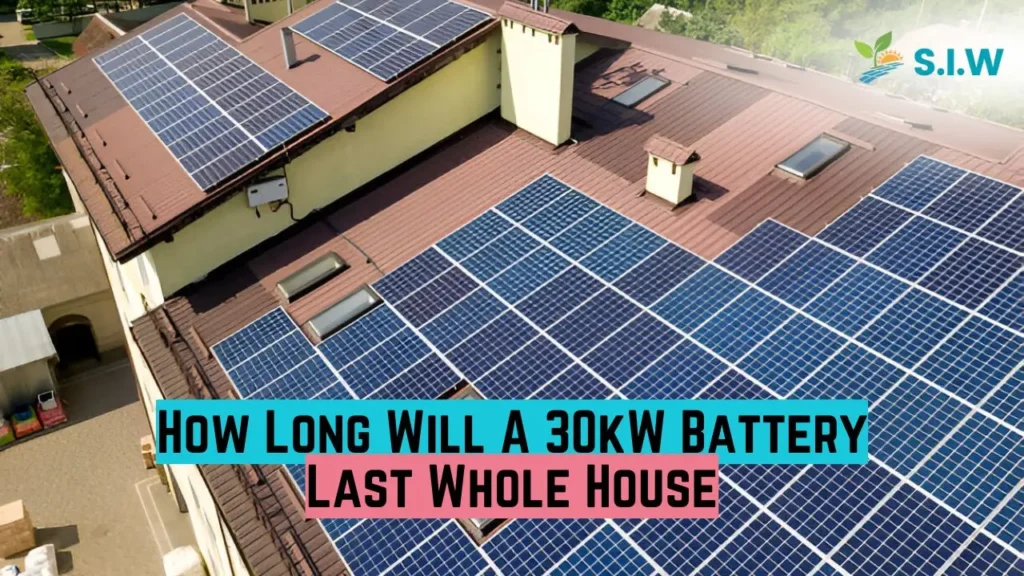With the shift toward sustainable energy, many homeowners are turning to battery storage systems to increase energy independence and resilience. A frequent question for those considering a 30kW battery is, How long can it power my entire home? This article dives into the main factors that influence a 30kW battery’s runtime and ways to optimize its performance for household needs.
Understanding Battery Capacity vs. Household Energy Needs
To accurately assess a 30kW battery’s capability, it’s essential to differentiate between power output and energy storage.
- Battery Capacity: While a “30kW” battery refers to a power output level, its total energy capacity, usually measured in kilowatt-hours (kWh), is more relevant to its runtime. For example, a 30kW battery system might have a total energy storage of around 90kWh, which means it can deliver 90kWh of energy before recharging.
- Household Energy Consumption: The average American home uses approximately 25-30 kWh daily, though this varies based on home size, number of occupants, and appliance usage. Understanding your household’s specific needs is vital for estimating battery runtime.
Calculating 30kW Battery Runtime
To gauge the runtime of a 30kW battery, use this formula:
Runtime (hours) = Total battery capacity (kWh) / Hourly household consumption (kWh)
For example, if a 30kW battery has a 90kWh capacity and your home uses 3kWh per hour, the battery could theoretically run for 30 hours:
- 90kWh ÷ 3kWh = 30 hours
This calculation provides a base estimate, but actual runtime will vary due to several factors.

Key Factors That Affect Battery Performance
- Energy Consumption Patterns
Homes with heavy energy usage during peak periods, like summer, will deplete the battery more quickly. Managing high-energy appliances such as HVAC systems and electric dryers effectively extends battery life.
- Battery Efficiency
Energy losses occur during charging and discharging, reducing overall efficiency. Losses range from 5-15%, meaning a 90kWh battery may deliver closer to 76-85kWh in practical terms.
- Depth of Discharge (DoD)
DoD indicates how much of the battery’s capacity is used before recharging. For instance, a 90% DoD means the battery can use up to 90% of its capacity safely. Batteries designed for deeper discharge cycles offer longer runtime but can shorten overall battery life.
- Solar Panel Integration
Solar panels can significantly extend battery life by recharging during daylight hours. A well-sized solar array, generating excess daytime power, can top up the battery for evening use, effectively lengthening its runtime.
Is a 30kW Battery Enough for an Entire Home?
Whether a 30kW battery is adequate depends on your energy usage:
- Small to Medium-Sized Homes: A 30kW battery with a 90-100kWh capacity could last 24-36 hours in a smaller home, particularly if paired with solar energy.
- Large Homes: For homes with high power demands, such as those with electric vehicles or central heating, a 30kW battery may last less than a day without recharging, making supplemental storage or solar integration crucial.
Strategies to Maximize Battery Efficiency
To optimize the performance of a 30kW battery system:
- Energy Monitoring: Real-time solar energy monitoring systems allow you to track appliance usage and adapt your habits to conserve battery power.
- Load Prioritization: In an outage, prioritize essential systems (e.g., lighting, refrigeration, and communication) and limit high-consumption appliances to extend battery life.
- Pair with Solar: Solar energy integration reduces reliance on the grid, offering continuous charging during sunny days and peak battery usage at night.
Sample Runtime Scenarios
This table shows how different consumption patterns influence battery runtime. A low-consumption home or one prioritizing critical loads could run for multiple days, while a high-consumption home might only run for a fraction of that time.
Frequently Asked Questions
How long can a 30kW battery power my home?
The runtime depends on your energy consumption and the battery’s total capacity in kWh. A 90kWh battery can power an average home using 3kWh per hour for up to 30 hours.
Is a 30kW battery sufficient for a large home?
Yes, but high-consumption homes will deplete a 30kW battery more quickly, particularly without solar or additional storage.
Can solar panels extend battery life?
Absolutely. Solar panels recharge the battery during the day, extending usable energy and reducing grid dependence.
By carefully managing energy consumption and integrating renewable resources, a 30kW battery system can effectively support household energy needs.








